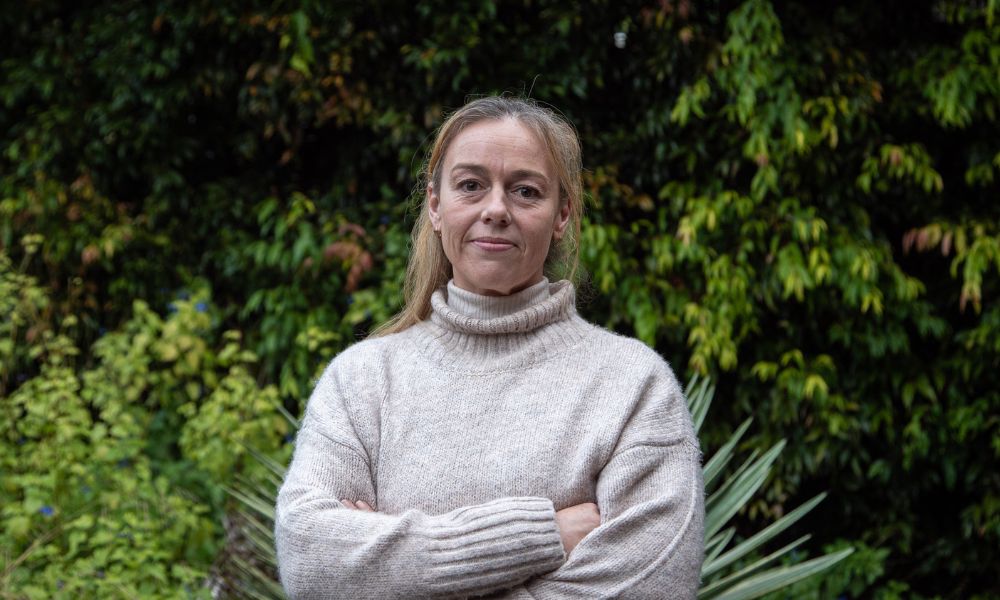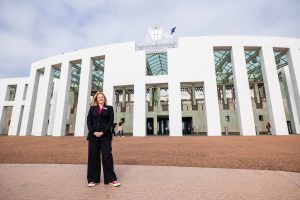This month a new report found that Every Moment Matters, a groundbreaking campaign to support alcohol-free pregnancies and safe breastfeeding practices, successfully changed the actions of an estimated 16,000+ Australians in 2023.
The report from Impact Economics and Policy found that the campaign had successfully led to a reduction of the cost of alcohol harms in Australia by $236 million.
Alcohol consumed at any stage of pregnancy passes directly to the developing baby and can damage their brain, body, and organs. It can lead to a lifelong disability, Fetal Alcohol Spectrum Disorder (FASD). FASD is the leading preventable developmental disability in Australia.
Angelene Bruce, is a FASD advocate, whose son lives with FASD. She has worked on the Every Moment Matters campaign since before its launch.
On its third anniversary, Angelene said she was thrilled to see the impact of the campaign.
“The Every Moment Matters campaign has been crucial in creating the prevention and awareness of prenatal alcohol exposure and FASD in Australia. The campaign is the first of its kind in the world and to see that it is having its third birthday is just incredible.
“I have been to international conferences and heard clinicians expressing their interest in modelling the campaign for their own countries.
“Whilst it has been challenging sharing my story as the biological mother of a child with FASD, due to incredible stigma surrounding prenatal alcohol exposure, I am beyond thrilled to hear that mothers are showing that they are hearing the Every Moment Matters Campaign and taking actions to avoid exposing their bubs to alcohol.”
Before the campaign, 66 per cent of women who were recently or currently pregnant said they would abstain from alcohol after pregnancy confirmation. After viewing the campaign, 80.2 per cent said they would abstain.
“Millions of Australians have seen the Every Moment Matters ads on television and social media –that’s an incredibly large number of people who are going to potentially go on to have alcohol-free pregnancies,” said Angelene.
“It has also helped my child to understand that he’s not alone in living with this invisible disability, which has helped him immensely.
“It’s fabulous to hear the clear and consistent messaging about prenatal alcohol exposure reaching so many Aussies. The National Guidelines have recently changed and state that there is no safe amount of alcohol during pregnancy. All alcohol products in Australia must carry a mandatory pregnancy warning label to reflect the real danger alcohol, a teratogen, poses to a developing baby.”
Angelene was unable to completely stop alcohol during her pregnancy due to a physical dependence, as life threatening withdrawals led to nearly miscarrying several times.
She was also 35 and carrying her “miracle’ baby “after being told she had zero chance of conceiving without IVF. Her hope is that FASD will be prevented wherever possible.
“The campaign really does matter when it comes to FASD. If stopping alcohol is challenging, for a myriad of reasons, my hope is that mums will feel more comfortable discussing this with their health care professionals without fear of judgement or stigma. It was a lonely journey for myself and my son back in 2009, I do not want any other mother to feel like I did, and that’s why I do what I do in such a public way.”
“While FASD can be well accommodated with early diagnosis plus strengths based FASD informed interventions, and individuals with FASD can live really productive lives, they will always carry challenges that they need to work with their whole lives on a daily basis,” she said.
“FASD is overwhelmingly invisible from the outside. However, the brains and central nervous systems of these individuals are profoundly affected and FASD is lifelong.
“My son is very well accommodated, was diagnosed early as I was specifically looking for FASD, has a modest NDIS plan, is doing amazing and now knows he is far from alone after hearing the campaign advertised on a mainstream radio station we listen to. For a mum, that’s everything!”







